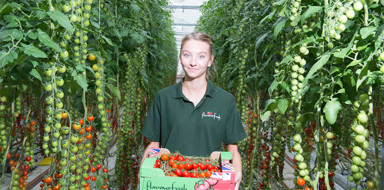Project Butterfly brings together a consortium of UK manufacturing organisations, solution providers and research organisations working across a number of sectors across the UK to share best practice and demonstrate the power of I4.0 to deliver near-term impact on the road to net zero manufacturing. Small changes can have a big impact, this is known as the butterfly effect. It's this principle that Project Butterfly looks to use to accelerate progress to Net Zero. The Project has a specific focus on improving efficiency in the use of materials and energy by using manufacturing data to optimise processes, increase right-first-time yield (FTY) and provide visibility of information to everyone in the factory. This can be done by using data to automatically update the schedule to deliver the most efficient use of energy. Using data from the process to improve the process by making it more efficient or increase the right-first-time yield.

Today, BEIS, UKRI and Made Smarter Innovation announced the winners of almost £14m in combined backing from its latest funding call – the Sustainable Smart Factory competition.
The collaborative research and development competition sought to identify and support digital innovations to improve the sustainability of manufacturing processes, resulting in either reduced material or energy consumption. Projects applying for funding were required to show an innovative development and application of data or digital technology that could help optimise material usage, and reduce, reuse or separate waste materials, or lower energy consumption to increase sustainability throughout an area of production.
Twelve projects were successful in their applications, securing between £1m and £8m in funding each, and offering solutions for a wide range of manufactured goods and industrial processes across a number of sectors spanning food, aerospace, automotive, plastics, electronics, and various engineering disciplines.
The successful projects range from two to 10 participant organisations each, making a combined 55 organisations taking part overall. These included participants stretching from Scotland to the South West and from Northern Ireland to East Anglia, and were made up of both SME and large manufacturers, technology developers, Universities and RTOs (Research & Technology organisations).
It is estimated the projects could create 1,000 jobs in the 3 years after their completion while reducing manufacturing CO2 emissions by 300,000 tonnes a year – the equivalent to taking nearly 65,000 cars off our roads.
Winners include Photocentric’s solution for digitally manufactured, 3D-printed parts that can be created entirely autonomously and will challenge existing injection moulding techniques from overseas. The Deep.Meta project will use novel AI techniques to help reduce energy use and carbon emissions in the steel industry, while Pragmatic Semiconductor’s project is looking to tackle the pollution within the electronics industry by building a new high-volume manufacturing facility that will help substantially reduce annual carbon emissions.
Industry Minister Jackie Doyle-Price said:
“Creating and adopting the latest in digital technology solutions will be key to the continued success of our manufacturing sector. It is now critical that companies in industries as varied as baking to advanced robotics are maximising their potential using technology such as AI and virtual reality.
The projects awarded funding today will cut energy consumption and boost growth for businesses in regions right across the UK, while helping our world-leading manufacturers keep pace with ever-growing global competition.”
Chris Needham, Innovation Lead in the Made Smarter Innovation challenge, said: “Effective digital technologies can have a substantial impact on the manufacturing sector, bringing outdated, inefficient and unproductive products and processes up the standards needed for a net zero industry of the future. It’s clear from the wide range of applications we received just how far waste and energy issues extend across different industries. The successful applicants clearly demonstrated real innovation and showed just how the right use of data and technology can make a significant difference to businesses. We now look forward to working alongside them to deliver successful outcomes.”
Projects will run for up to two years and are expected to open the door to significant CO2e savings and a cleaner manufacturing economy. Details on all of the Sustainable Smart Factory competition winners can be found below.
There are still further opportunities to get involved with the Made Smarter Innovation challenge. The MSI Digital Supply Chain Innovation Hub is open here for expressions of interest to run supply chain test beds. The next collaborative R&D funding opportunity will also be launching in January 2023, offering a combined £6m for industrial readiness robotics innovation projects within manufacturing operations. More information on the MSI challenge can be found here.





